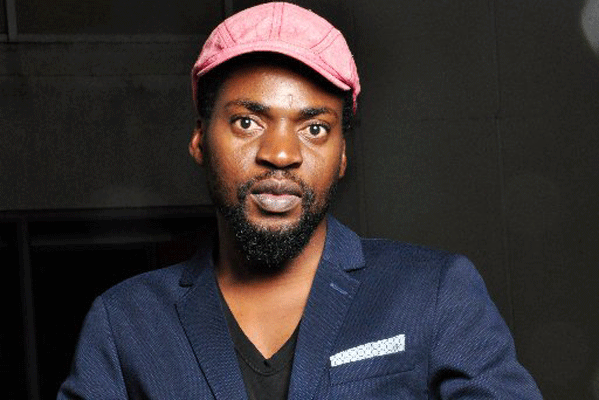
A journey that started in rural Chiredzi has unearthed footprints for a lasting legacy in the African visual story-telling landscape.
By Solomon Mutasa in Johannesburg

Thirty-five-year-old film director and writer Davison Mudzingwa’s harsh upbringing in Chishuro Village, which is an hour’s drive from Chiredzi town, steered his determination towards having a nose for rich stories that have changed the international film spectrum.
“I relate easily to situations because I came across them during my childhood. Being raised by a single parent — my mother — was not easy. But she did what she could to provide for me while she was working in the sugarcane plantations, which was the only source of income in Chiredzi,” Mudzingwa told The Standard Style recently.
“Those experiences prepared me to go out there and strive for issues that affected people.”
It is such mentality that led him to find the unique story buried in the sands of the “Kalahari desert” that won him an international award on its premiere in New York this year. His film, Lost Tongue, was named the “surprise” film at the Socially Relevant Film Festival in New York. The Women Critics Movement reckoned that out of the thousands of films that entered the competition, Lost Tongue deserved the prestigious award.
Lost Tongue is a documentary about rescuing a southern African language from extinction. The Nu/u language is believed to be 25 000 years old and it is a language for the San community in the Northern Cape. While democracy in South Africa has brought improvement in the San’s way of life, they fear the death of their culture could lead to disappearance of their language.
The small group is determined to keep the Nu/u language alive through the struggle against the apathy of their community and government bureaucracy. One of their leaders, known as the Queen of the Khoisan, will on the dawn of her coronation herald a new chapter in their struggle.
- Chamisa under fire over US$120K donation
- Mavhunga puts DeMbare into Chibuku quarterfinals
- Pension funds bet on Cabora Bassa oilfields
- Councils defy govt fire tender directive
Keep Reading
Mudzingwa explained the storyline.
“When I started filming in Cape Town, my first project was called Rolling Jets, which focused on people who lived on the periphery of the Cape Town airport in 2012.Then Bush Trail followed about a lady on a journey back to Kalahari that encouraged me to sow the seeds for Lost Tongue,” he said.
“Chiredzi’s hot conditions are similar to those of the Kalahari. I know how it feels and can relate easily to experiences, and I easily adapted.”
Mudzingwa was surprised to see that the Khoisan spoke Afrikaans and looked modernised.
Upon research, he came across Helena Steenkamp, who unravelled personal issues affecting her identity.
“I followed her trail of seeking answers at both personal and national level,” he said.
“The passion is like blind passion and you don’t know where the story is going to lead you. We found out that the language is spoken by only four remaining elders in the Northern Cape. We had to prove this story to the world and out of the four elders, only three are left.”
After such an impressive debut in New York, Lost Tongue came back to Africa and did well at the 37th Durban International Film Festival and the Zanzibar International Film Festival before appearing at the Indie Karoo Film Festival and ReelHeART International Film in Toronto.
Mudzingwa said Lost Tongue was fully booked until February next year in countries like Czech Republic and Sweden. “We had to be innovative in terms of logistics. We travelled across three countries — South Africa, Namibia and Botswana — while filming and the experience was amazing. We noticed that the three countries are the same,” he said.
“In pre-production, we made three trips of researching and we accomplished that in four months along with the urgency of the story.”
Mudzingwa said the problem of languages was universal.
“The opportunity to screen in Cape Town, Johannesburg and Durban gave the production team an analysis to come up with several angles. After watching the film people started to question their own cultures,” he said.
“It’s just a start for Lost Tongue, we want the story to go on for centuries.”
Mudzingwa is planning to take the film across southern African countries, showing it in schools and universities as part of the Lost Tongue Legacy project.
He said a multi-media film centre for the Kalahari community would be opened so that the language is documented. “Even when elders are gone, new generations will learn the language so that it becomes relevant in future,” he said.
“Life experiences in Zimbabwe inspired me to do films, but I formally trained about filming in Cape Town.” Mudzingwa said his production company — Mvura yaAfrica — would do a lot of African documentaries.
“Travelling makes you a richer person. I’m passionate about African stories and I am better placed to tell the African stories that have not been told,” he said.
Mudzingwa is working on a Zimbabwean environmental documentary based on a story of a farmer called Bitter Sugar. The film, which will be released next year, has been in production since 2012.











